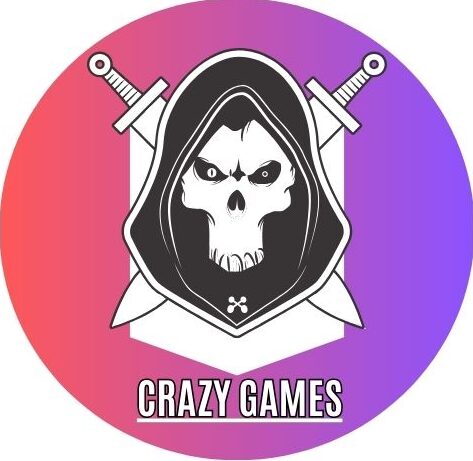Table of Contents
Introduction
As the pace of digitization accelerated with the passage of time, online gaming surrounded the world in its whirlpool. From common gamers to crazy fans, millions of people on the planet are fond of the excitement and fun of online gaming. With lots of online gaming, “crazy games” have become incredibly popular among masses. Better referred to as quirky, quick, and unconventional games, “crazy games” provide a bizarre type of game experience that gets players to replay the game repeatedly.

But as with any other internet activity, crazy games also have risks. From cyber attack to privacy invasion, caution should be exercised when playing games online. This guide takes you through all you need to know about playing crazy games online safely, from tips, best practices, and FAQs.
What Are Crazy Games?
Crazy games are a type of web games which are well-known for their unrealistic and usually funny gameplay. These are easy to play but not easy to learn, hence that much popular across different sections of society. Among the most well-known ones are:
t”Happy Wheels”: It is a game of physics wherein the characters are pushed by the player through obstacles.
“Slither.io”: Multiplayer game in which one is a snake and tries to grow as large as can be.
“Paper.io”: Space conquering game where one grows as much territory as can be without being caught.
The games are typically free and accessed via web browsers, making it easy for casual players.
Why Are Crazy Games So Popular?
1. Accessibility: Most crazy games are browser-based and do not require downloads or hardware.
2. Fast Game Play: They are made to be played quickly for a few minutes, just enough to waste time.
3. Variety: The genre contains a lot of themes and mechanisms to pick from, so everybody gets something he likes.
4. Social Interaction: Most of the crazy games have multiplayer options, where a person can play with or against friends and acquaintances.
The Risks of Playing Crazy Games Online
Fun games are entertaining, but they are unsafe. Some of the usual issues are:
1. Malware and Viruses
Certain websites that you play the games on have dirty software which will contaminate your system. Play only on authentic websites.
2. Privacy Issues
Most of the games request your personal information or access to the information on your computer. Do not reveal too much.
3. In-Game Purchases
Some games encourage microtransactions, which may translate to surprise expenditures.
4. Online Predators
Multiplayer games can also introduce players, especially children, to offensive behavior or communication.
5. Addiction
The addiction that these games could lead to results in excessive screen time and neglect of actual responsibilities.

How to Play Crazy Games Online Safely
1. Use Safe Sites
Play from top gaming websites like CrazyGames.com, Poki, or Kongregate. Popular sites have lesser chances of uploading malicious content.
2. Download Antivirus Software
Protect your computer or phone with an updated antivirus software to ward off malware.
3. Avoid Sharing Personal Information
Never share sensitive information like your real name, address, or monetary details while gaming.
4. Utilize Parental Controls
While kids are gaming, utilize parental controls to limit unwanted material and track screen time.
5. Be Cautious of In-Game Spend
Employ spend limits or switch off in-app spends to prevent unexpected expenses piling up.
6. Lock Down Passwords
Utilize distinctive, safe passwords for gaming profiles to secure against hacking.
7. Keep Up to Date
Maintain your operating system and browser in sync to defend against security vulnerabilities.
8. Screen Time Monitoring
Develop a culture of alternating between gaming and other tasks and commitments.
Personal Anecdote: My First Experience with Crazy Games
I remember that Sunday afternoon I initially viewed a nutty game. It was a lazy Sunday afternoon, and I was on the web when I found a game called “Happy Wheels.” I was intrigued by the goofy characters and goofy gameplay, so I thought that I would check it out. Next thing I knew, hours passed while I chuckled at the crazy physics and tried to get a new high score.
But my excitement was short-lived when I noticed that my computer was slowing down. I scanned and discovered that the site where I had played the game had installed adware on my computer. It was an eye-opener and learning experience about playing games on secure websites and cyber security.
FAQs About Playing Crazy Games Online Safely
1. Are crazy games free to play?
Most of the crazy games are available for free, and some of them give you in-game currency to spend or pay titles.
2. Are crazy games playable on my mobile phone?
Yes, most of the crazy games are mobile apps or are the ones which can be played from the mobile browser.
3. How do I know whether a gaming website is safe?
Look for HTTPS in the URL address, read other people’s reviews, and search for a privacy policy.
4. Are crazy games suitable for children?
Most crazy games are suitable for children, but some contain violence or objectionable content. Always check the rating and game description.
5. How do I protect myself from malware when playing online?
Play on reputable websites, don’t click unusual advertisements, and use antivirus protection.
6. Do crazy games function when I am offline?

Most of the crazy games require you to be online, but some have offline features.
7. What do I do when I am being subjected to inappropropriate conduct by a multiplayer game player?
Report the player to the game moderators and block where applicable.
8. How do I restrict screen time gaming?
Set a timer or use games that monitor and limit your game playing time.
Conclusion
Whimsical on-line games are thrilling and fun activities, so long as only your protection and privacy are your priority concerns. So long as you follow the precepts and guidelines we have laid down here, you can have a blast at playing your favorite games without jeopardizing either. Rank newbie or gamer-in-chief, prudence and vigilance is your better assurance for fun and security at on-line gaming.

